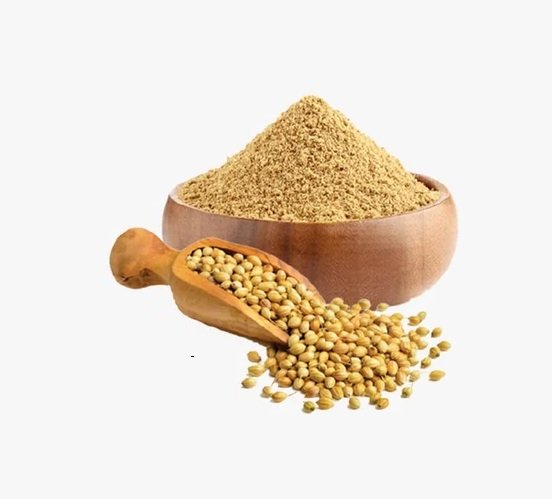

Coriander / Dhaniya
₹30.00 ₹27.00
The most beloved spice of Indian kitchen with both culinary and medicinal significance
Note: Powder weight vary due to burn exhaust (5-10%).
- Description
- Additional information
- Reviews (0)
- Store Policies
- Inquiries
Description
Coriander: Know About it to Use it with Perfection
Coriander, also known as cilantro or Chinese parsley, is a herbaceous plant belonging to the Apiaceae family. It is widely cultivated and used in culinary traditions around the world for both its leaves and seeds. While the leaves are known for their bright, citrusy flavor, the seeds have a warm, aromatic profile. Coriander is native to regions spanning from Southern Europe to Western Asia, and its usage dates back thousands of years.
The Arrival in Human World
The use of coriander dates back to ancient times, with evidence of its cultivation and consumption found in archaeological sites dating back to 5000 BC. It was highly prized by ancient civilizations, including the Egyptians, Greeks, and Romans, who used it for culinary, medicinal, and even ceremonial purposes. Coriander seeds were among the spices traded along the ancient Spice Route, contributing to its spread to different parts of the world.
Core Fundamentals
Coriander owes its distinctive flavor and aroma to its rich chemical composition. The leaves contain volatile oils such as linalool and geranyl acetate, which impart a fresh, citrusy scent. Meanwhile, the seeds contain essential oils like linalool, geraniol, and α-pinene, along with fatty acids and phenolic compounds, which contribute to their warm, spicy flavor. Additionally, coriander seeds are a rich source of antioxidants, vitamins, and minerals, making them a valuable addition to the diet.
Basic Uses
Coriander is a versatile herb that adds depth and complexity to a wide range of dishes. The leaves are commonly used in cuisines across Asia, the Middle East, and Latin America, where they are added to salads, salsas, curries, soups, and stir-fries. In Indian cuisine, coriander leaves, known as dhania, are used as a garnish and flavoring agent in dishes like chutneys, dals, and biryanis.
Coriander seeds are equally prized and are used whole or ground in spice blends, marinades, pickles, and baked goods. Ground coriander is a key ingredient in curry powders, garam masala, and berbere spice blends, adding warmth and depth to dishes. Additionally, coriander seeds are often toasted before use to enhance their flavor and aroma.
In addition to its culinary uses, coriander has a long history of use in traditional medicine. It is believed to have digestive, anti-inflammatory, and antimicrobial properties, and is used to alleviate gastrointestinal discomfort, improve digestion, and promote overall well-being. Coriander tea, made from the seeds, is a popular remedy for bloating, indigestion, and nausea.
Benefits of Optimum Use
Coriander, whether used as fresh leaves or dried seeds, offers several potential health benefits when included in your diet, especially in the context of an ulcer. Here are some of the benefits of coriander in managing ulcers:
-
-
- Anti-inflammatory Properties: Coriander contains compounds like linalool and geraniol, which possess anti-inflammatory properties. These compounds may help reduce inflammation in the digestive tract, which is beneficial for managing ulcers, as inflammation is often a contributing factor to ulcer development and exacerbation.
- Antibacterial Effects: Coriander has been found to exhibit antibacterial properties against various strains of bacteria, including Helicobacter pylori (H. pylori). H. pylori is a bacterium commonly associated with the development of gastric ulcers. Including coriander in your diet may help inhibit the growth of H. pylori and reduce the risk of ulcer formation.
- Digestive Aid: Coriander is known to stimulate digestion and improve gastrointestinal health. It can help regulate stomach acid secretion and promote the secretion of digestive enzymes, which may aid in the healing process of ulcers. Additionally, coriander’s carminative properties can help alleviate symptoms such as bloating and gas, which are common in individuals with ulcers.
- Rich in Antioxidants: Coriander is a rich source of antioxidants, including flavonoids, phenolic compounds, and vitamins A and C. These antioxidants help neutralize free radicals in the body, which can cause oxidative stress and damage to the stomach lining, exacerbating ulcer symptoms. Consuming coriander may help protect against oxidative damage and support ulcer healing.
- Pain Relief: Some studies suggest that coriander may have analgesic properties, helping to alleviate pain associated with ulcers. By reducing inflammation and promoting healing in the stomach lining, coriander may help alleviate discomfort and pain caused by ulcers.
-
It’s important to note that while coriander may offer potential benefits for managing ulcers, it is not a substitute for medical treatment. If you have been diagnosed with an ulcer or are experiencing symptoms suggestive of an ulcer, it’s essential to consult with a healthcare professional for proper diagnosis and treatment. Additionally, individual responses to dietary interventions may vary, so it’s advisable to consume coriander as part of a balanced diet and discuss any dietary changes with your healthcare provider.
In conclusion, coriander’s rich history, complex chemistry, and diverse uses make it a beloved herb with both culinary and medicinal significance. Whether enjoyed fresh in salads or dried in spice blends, coriander continues to captivate and inspire with its vibrant flavor, aroma, and health-promoting properties.
Additional information
| Form | Powder, Whole |
|---|---|
| Quantity | 100 gm, 250 gm, 500 gm, 1 kg |
Be the first to review “Coriander / Dhaniya” Cancel reply
General Inquiries
There are no inquiries yet.

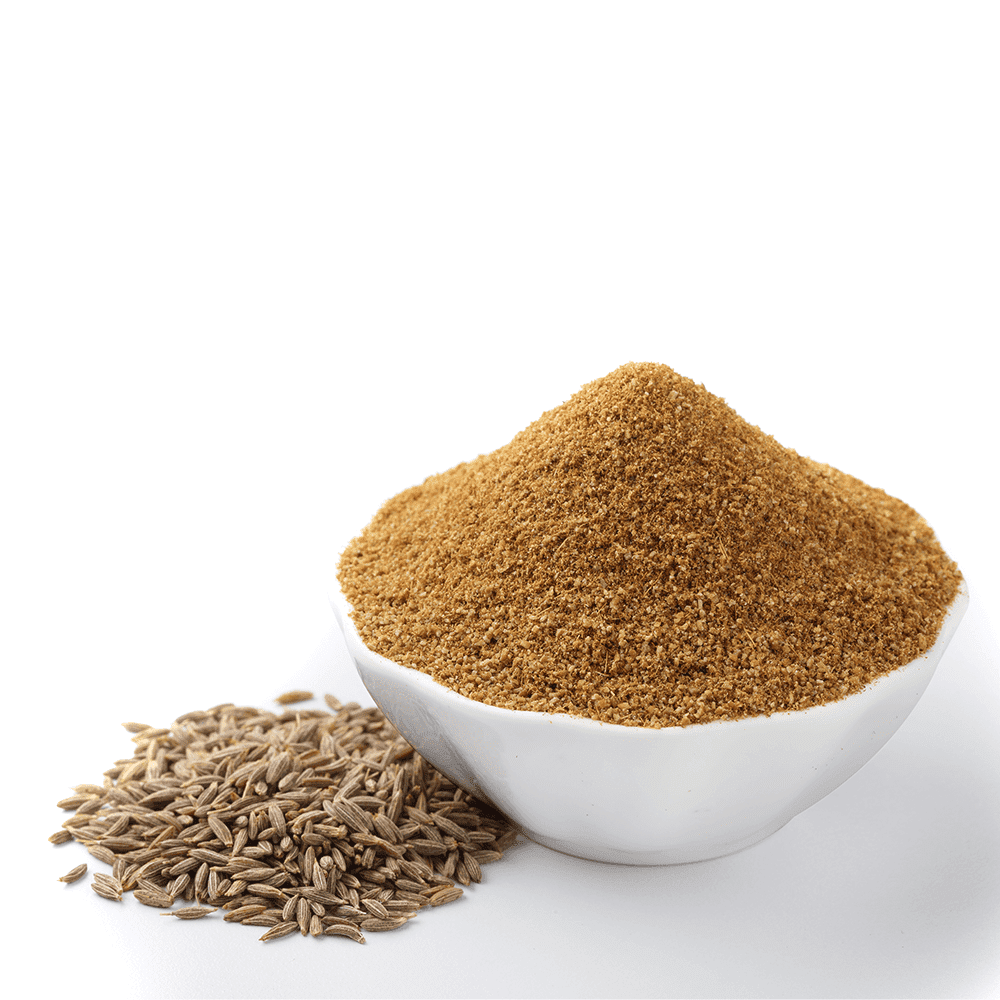
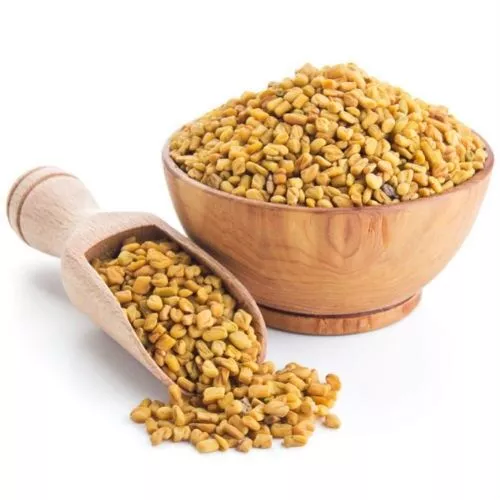
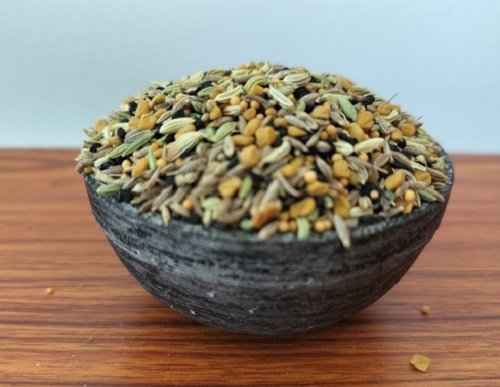
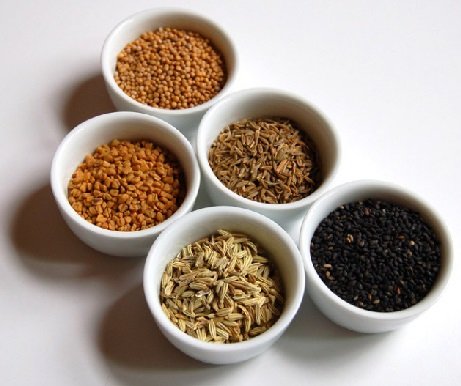
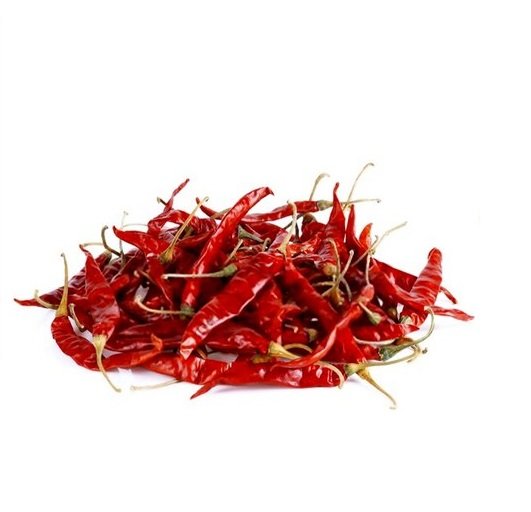
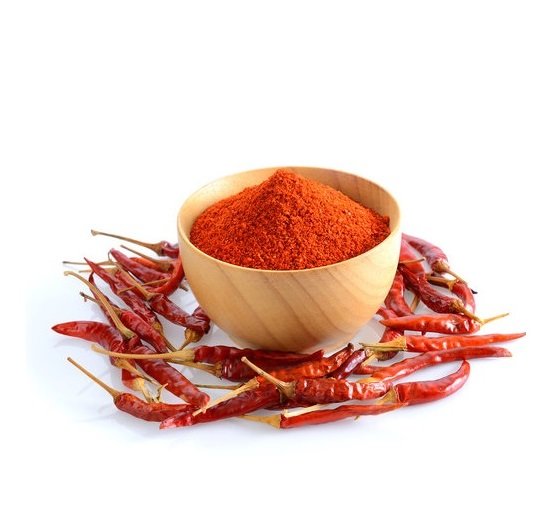
Reviews
There are no reviews yet.